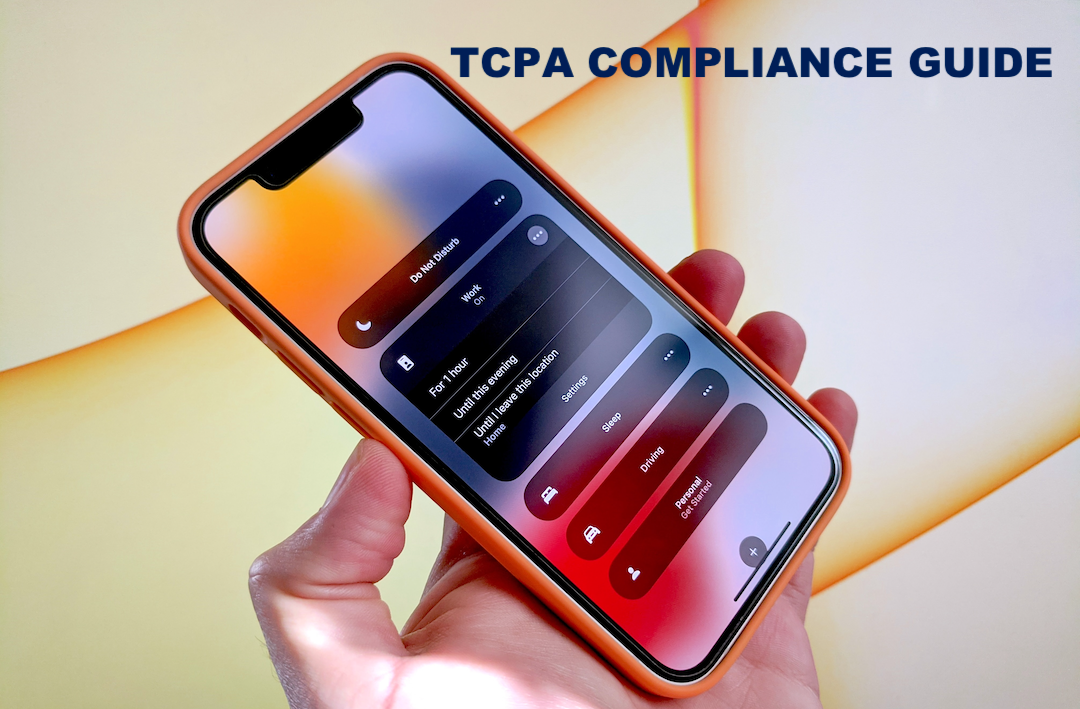
In the bustling world of modern communication, few things are as intrusive or unwelcome as an unsolicited phone call or message.
Stepping in to shield American consumers from this digital deluge, the Telephone Consumer Protection Act (TCPA) emerges not just as a piece of legislation, but as a beacon of respect for personal space in the digital age.
Recognized as one of the stalwart defenders in American consumer protection law, the TCPA plays a pivotal role in ensuring businesses strike a harmonious balance between outreach and overreach.
If you've ever pondered the fine line between effective communication and infringement, you're in the right place. This guide delves into the intricate maze of TCPA compliance, illuminating its corners and presenting a step-by-step checklist to help businesses navigate with confidence and consideration.
1. Understand The Basics of TCPA
In 1991, as households were perfecting the art of juggling landlines, fax machines, and the early inklings of the internet, the Federal Communications Commission (FCC) identified a pressing issue. Unsolicited telemarketing calls and unending faxes were fast becoming the bane of many Americans' existence.
Enter the Telephone Consumer Protection Act (TCPA) - not merely as a response but as a statement of intent that the consumer’s peace and privacy were paramount.
The beauty of the TCPA, however, lies in its adaptability. Recognizing the ubiquity and immediacy of text messages and the impersonal efficiency of robocalls, the TCPA expanded its embrace. It stood firm, ensuring that as technology advanced, the rights and comfort of consumers did not diminish.
However, merely knowing that the TCPA exists isn’t sufficient. To truly navigate its intricacies and uphold its ethos, one must delve deeper, understanding its core tenets and guiding principles.
Checklist:
- Immerse In The TCPA: It's essential to not just know the act but truly understand its provisions. A thorough reading is more than a formality; it's the first step to comprehensive compliance.
- Demystify The Terminology: The TCPA, like any legal document, comes with its lexicon. Terms such as "express written consent" and "established business relationship" aren't just legalese; they're crucial pillars that define permissible communications.
2. Ensure Express Written Consent
Unlike implied or assumed consent, express written consent leaves no room for ambiguity. It's a clear, unambiguous acknowledgment from the recipient, granting you the right to communicate with them.
But there's a catch – and it's a significant one. This consent shouldn't be a needle in a haystack, lost in pages of jargon or tucked away in the tiniest font size. Nor can it be a sneaky addition, silently bundled into a purchase condition.
The spirit behind this provision is straightforward: transparency and respect. It ensures that individuals know exactly what they're signing up for and grants them the autonomy to choose.
Checklist:
- Transparency Is Key: When seeking TCPA consent, use clear and conspicuous disclosure methods. The language should be straightforward, the intent unambiguous, and the provision for consent evident.
- Clarity Over Complexity: Consent forms shouldn't feel like deciphering a complex puzzle. Design them with clarity and simplicity at their core, ensuring that even someone unfamiliar with legal jargon can comprehend and make an informed decision.

3. Maintain a Do Not Call List
The Telephone Consumer Protection Act (TCPA) recognizes the importance of privacy and the rights of individuals to claim and maintain their tranquility. Central to this vision is the 'Do Not Call' list.
This isn't merely a list; it's a testament to consumer agency. It's a clear declaration from individuals that they choose not to be on the receiving end of specific communications.
For businesses, respecting this list isn't just about regulatory compliance; it's a gesture that showcases their respect for individual preferences.
Checklist:
- Adopt A Robust Recording System: Given the constant influx of requests and data, a manual approach can be cumbersome and prone to errors. Employ a system that captures 'Do Not Call' requests seamlessly and updates in real-time. This not only streamlines the process but also minimizes the risk of oversight.
- Swift Action Over Stalling: Receiving a 'Do Not Call' request isn't the final step; it's the beginning of a timely action.
Once a request is registered, it should trigger a prompt response. Ensure that the numbers are removed from your call list without delay.
4. Train Your Team
In an era of stringent regulations like the Telephone Consumer Protection Act (TCPA), sending out a communication isn't just about hitting the 'send' button. It's about understanding, internalizing, and respecting the boundaries set by such regulations.
The TCPA isn't merely a set of rules inscribed on paper; it encapsulates a philosophy of respect, privacy, and consent.
Ensuring compliance, therefore, isn't solely about ticking boxes. It's about ingraining this philosophy within the very ethos of your team.
But how can this vision be transformed into reality?
Checklist:
- Frequent, Focused Training Sessions: Rather than a one-off induction, consider TCPA compliance as an ongoing educational journey. Organize regular training sessions that dive deep into its provisions, case studies, and real-world scenarios.
- Stay Agile With Updates: Ensure a system or a designated team is in place that actively monitors any changes or updates to the TCPA. Relay this information promptly to the broader team, ensuring they're always operating with the most current knowledge.

Conclusion
Compliance with the TCPA isn’t just about avoiding penalties; it's about respecting the rights and wishes of consumers.
While the regulations might seem stringent, they've been established to protect consumers from unwanted disturbances, and to ensure businesses communicate more effectively.
By embracing TCPA guidelines, businesses not only safeguard themselves from legal repercussions but also cultivate a more trusting relationship with their customer base.
Share this post
Leave a comment
All comments are moderated. Spammy and bot submitted comments are deleted. Please submit the comments that are helpful to others, and we'll approve your comments. A comment that includes outbound link will only be approved if the content is relevant to the topic, and has some value to our readers.

Comments (0)
No comment